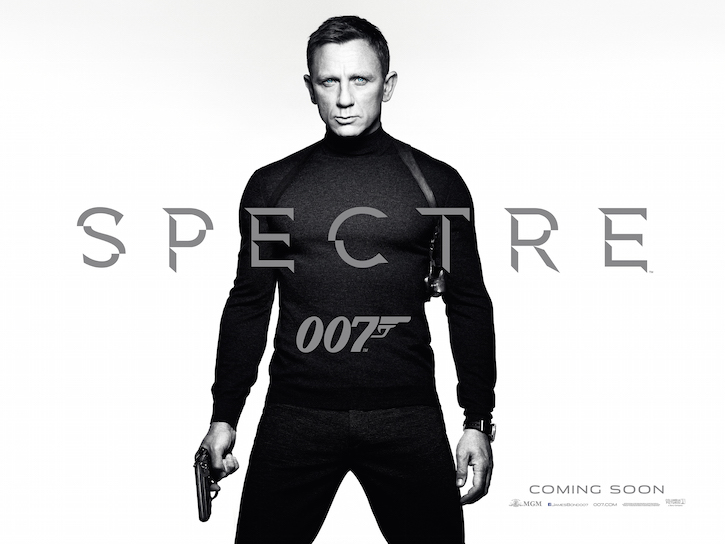James Bond needs to be bookish

James Bond films have never hewed too closely to Ian Fleming’s novels. Even the movies based directly on Fleming’s books, like Goldfinger, take many liberties with the plot and tone of the novels. This is perfectly fine; a movie is a movie and a book is a book. Bond films have developed their own language over the course of 50 years; they’re as distinct and self-referential as any film series in cinematic history. You won’t find Bond using many gadgets in the books, for instance, but it’s hard to imagine the cinematic Bond without a miniaturized blowdart in his watch or some other silly invention quite literally up his sleeve. So given that the Bond books and the Bond movies have such little in common, it might sound strange for me to say that Spectre, the new Bond movie, is missing a certain literary spirit. But I think that’s exactly the problem.
I’m a Bond fan; I’ve read every one of Fleming’s novels and I’ve seen all the films. Spectre is not the worst Bond film, but it’s in the bottom tier. It’s just a mess of a movie, all telling and no showing. The bad guy in the film tells Bond he’s responsible for every bad thing that happened in every other Bond movie of the last decade or so, but then he doesn’t produce any proof that this is the case. Likewise, a ridiculous connection between Bond and the villain is explained, but we’re never shown why it matters, or how they feel about that connection. The criminal organization in the title is introduced, but there are no real stakes. We know what they’re after, but we don’t know what they’ll do with it, or why they’d be any scarier than the omniscient, omnipotent, omnipresent threat they’re painted as being on their introduction in the film.
These are common problems with the modern Hollywood filmmaking-by-committee machine; scriptwriters get cause and effect mixed up, and so franchise movies tend to float on a cushion of hot air when they really need solid foundations. (Consider Star Trek Into Darkness or Amazing Spider-Man 2 or, to a lesser extent, Avengers: Age of Ultron or any of the other lackluster franchise movies of the past few years.) Bond movies, at their best, have always retained a literary sense of structure rather than the standard Hollywood three-act formula.
That literary structure is this: Bond chases a series of ideas around the planet, getting into scuffles along the way. Every stop leads to the next stop on the tour. There is an idea and a reason behind every scene in the film; every sentence spoken in a Bond film should be a propulsive plot element that sends the movie hurtling forward. Without that rigid structure, that literary understanding of cause and effect, you get a movie, well, that feels a lot like Spectre: aimless, shoddy, and painfully dumb.
I understand that the well is fairly dry in terms of Fleming’s source material. Most of those novels and stories have been strip-mined into movies already. That’s okay. All the producers need to do is to get a novelist, a good novelist, on staff. (Sebastian Faulks has already written one very good Bond thriller; he’d be perfect for the job.) Then they need to get the novelist to figure out the motivation of the bad guys, and then they need the novelist to reverse-engineer the chase that leads to the final confrontation. Is this so hard? You can’t just keep mining the nonexistent Bond backstory for more phony trauma; at some point, Bond has to do something. He’s a man of action, after all. More than that, he’s a man of literary action. It’s time to bring the books back to Bond.